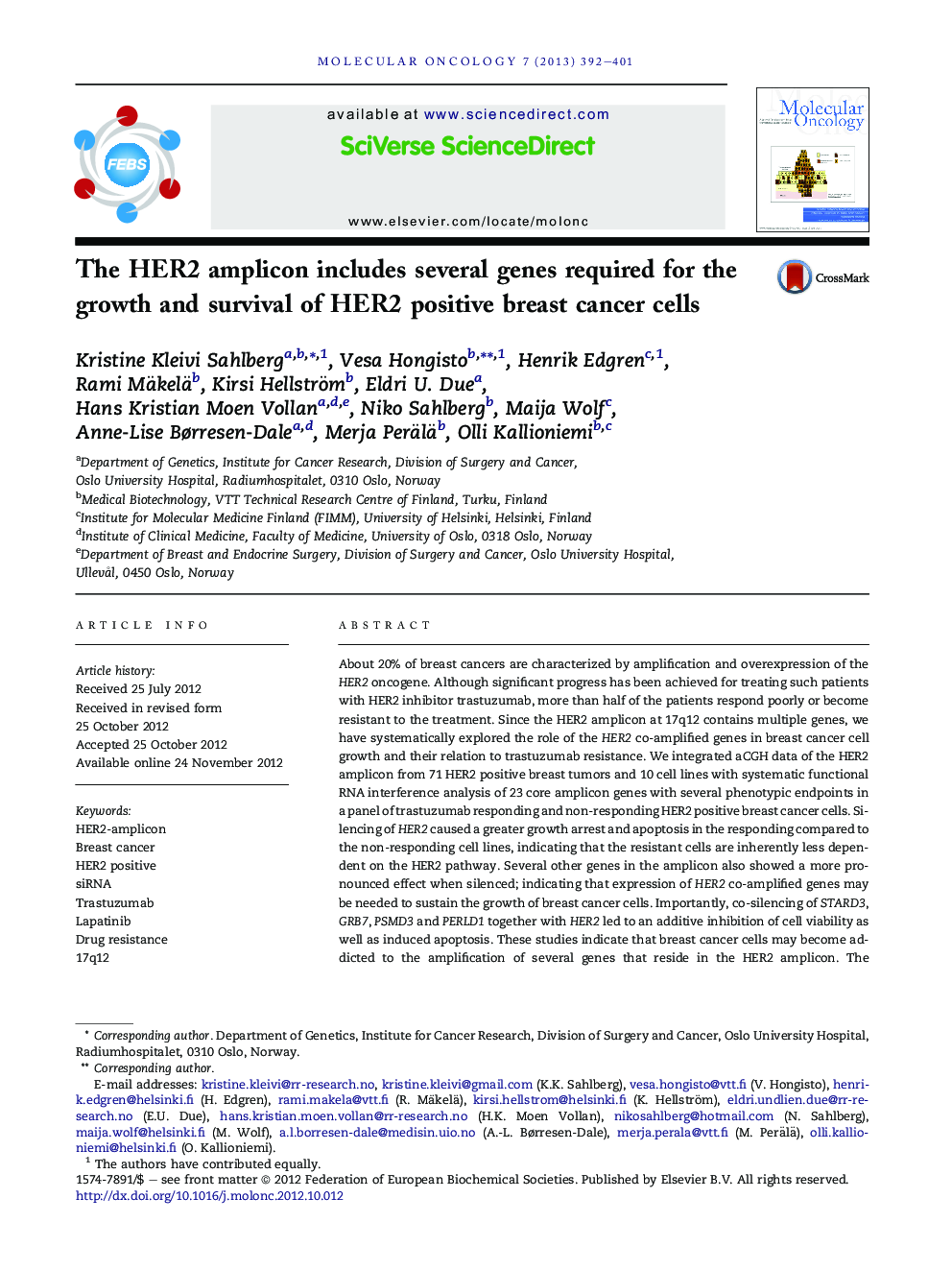| Article ID | Journal | Published Year | Pages | File Type |
|---|---|---|---|---|
| 2145710 | Molecular Oncology | 2013 | 10 Pages |
About 20% of breast cancers are characterized by amplification and overexpression of the HER2 oncogene. Although significant progress has been achieved for treating such patients with HER2 inhibitor trastuzumab, more than half of the patients respond poorly or become resistant to the treatment. Since the HER2 amplicon at 17q12 contains multiple genes, we have systematically explored the role of the HER2 co-amplified genes in breast cancer cell growth and their relation to trastuzumab resistance. We integrated aCGH data of the HER2 amplicon from 71 HER2 positive breast tumors and 10 cell lines with systematic functional RNA interference analysis of 23 core amplicon genes with several phenotypic endpoints in a panel of trastuzumab responding and non-responding HER2 positive breast cancer cells. Silencing of HER2 caused a greater growth arrest and apoptosis in the responding compared to the non-responding cell lines, indicating that the resistant cells are inherently less dependent on the HER2 pathway. Several other genes in the amplicon also showed a more pronounced effect when silenced; indicating that expression of HER2 co-amplified genes may be needed to sustain the growth of breast cancer cells. Importantly, co-silencing of STARD3, GRB7, PSMD3 and PERLD1 together with HER2 led to an additive inhibition of cell viability as well as induced apoptosis. These studies indicate that breast cancer cells may become addicted to the amplification of several genes that reside in the HER2 amplicon. The simultaneous targeting of these genes may increase the efficacy of the anti-HER2 therapies and possibly also counteract trastuzumab resistance. The observed additive effects seem to culminate to both apoptosis and cell proliferation pathways indicating that these pathways may be interesting targets for combinatorial treatment of HER2+ breast cancers.
► aCGH of HER2 amplicon in breast cancer revealed a common amplification of 27 genes. ► RNAi suggested that several genes in the HER2 amplicon are required for cancer growth. ► Increased dependency on HER2 in trastuzumab responding than non-responding cell lines. ► Co-silencing of STARD3, GRB7, PSMD3 and PERLD1 with HER2 led to additive inhibition.
